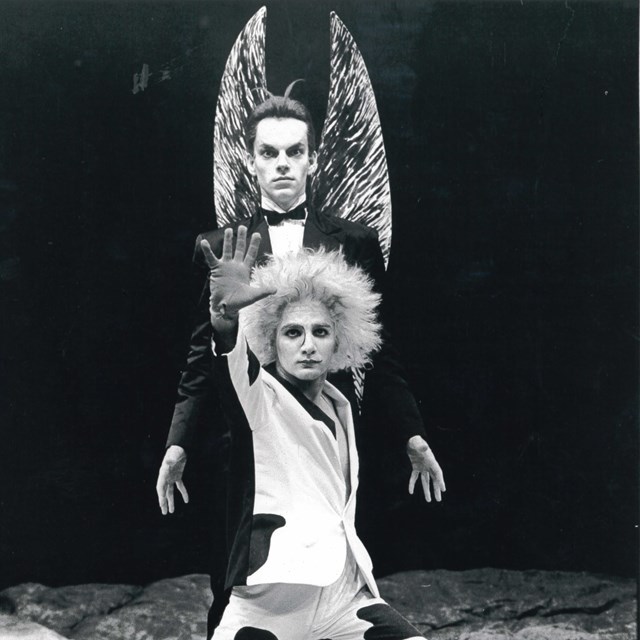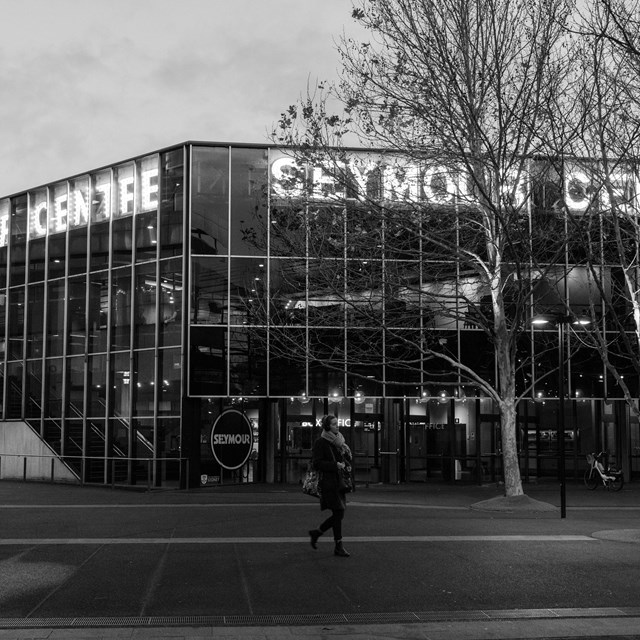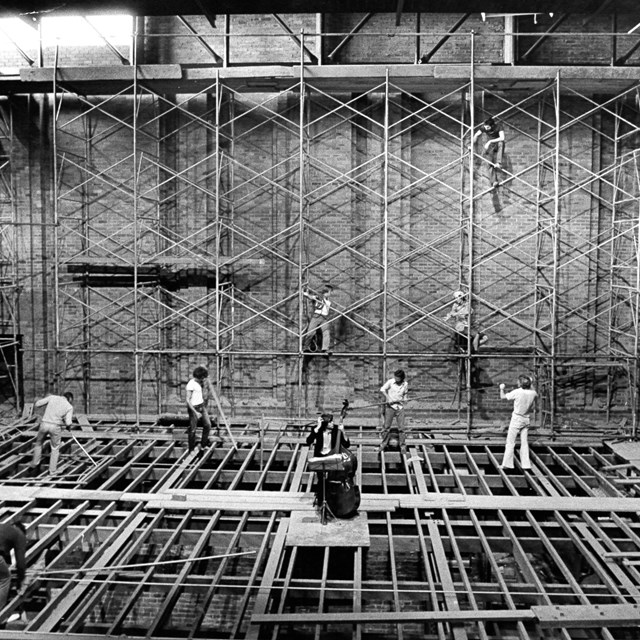A note from The Museum of Modern Love rehearsal room
Director, Tim Jones, on bringing this new play to life
"[In art]... what one does is what counts and not what one had the intention of doing." - Pablo Picasso
I've been thinking about this quote a lot over the last 18 months or so.
Making a new piece of theatre is always challenging, filled with difficult choices (what to cut and what to keep), anticipating an audience reaction without ever fully knowing, and developing and shaping theatrical possibilities all within the framework of the work never having been performed before. This is the normal terrain, and one I have been part of many times—directing new work has, largely, been my thing.
Back in 2018 I read The Museum of Modern Love, a book that I thought could make an interesting piece of theatre. In addition, this wholly Australian story written by Heather Rose offered the opportunity to tell a story without a single Australian character, set in a different country. This seemed to me a valuable addition to the debate around what makes a work germane to its author's nationality. So, many boxes ticked—and we went for it!
But since this date, the world has changed dramatically.
Many, many times I felt that the task of creating this new theatre work (my core business!) was too hard. And then, each time, a chink of hope would appear—a small gap in the progress of the virus that allowed for an in-person development, some extra funding available for new initiatives, and somehow, now, we have found ourselves here, on the eve of actually presenting this premiere production.
However, as I write this, the knife's edge is getting sharper. Any day, the production could fold if, for example, a few cast members were to become unwell, or if the government decided to close our doors—unthinkable two years ago and now, almost, strangely normal. The stress has been significant. So much work by so many to see if a large-scale story such as this could make a worthwhile piece of theatre—and yet it still may not happen.
However, in recent days, I seem to have been taken over by a feeling of calm. I'm not fully sure why, but perhaps it's this: in 2010, over 1,000 people simply sat and looked at Marina Abramović for her work, The Artist is Present, at MoMA, and over 700,000 watched from the sidelines, often for hours at a time.
I don't know if this was good art, bad art, or not art at all, but I think the people in that city, New York, felt that something about the experience had merit. At that moment in time, the concept of sitting with someone and being present with them had value—it had importance.
So, as I write this, not knowing if our performance may ever reach the stage, all I can do is a similar thing: be present, try our best, and trust the moment. I've learned a great deal over the last two years through navigating this unprecedented occurrence (well, unprecedented for us folk who have had the luxury of a good 50 years or so).
I'm glad we did not throw in the towel as we could have so many times. I'm glad I have tried, as Picasso would have me do, to make art and not just have good intentions. This process may yet produce a piece of exciting, stimulating theatre but I can't help feeling that, more than anything, the real achievement has been in the journey, the act of trying to make it happen and the surrender to the moment.
Timothy Jones
Director, The Museum of Modern Love
9 January 2022
Image credit: Ten Alphas
In January 2022, as part of Sydney Festival, we will present the world premiere stage adaptation of The Museum of Modern Love. Find out more and purchase tickets at the link below.
Buy tickets"[In art]... what one does is what counts and not what one had the intention of doing." - Pablo Picasso
I've been thinking about this quote a lot over the last 18 months or so.
Making a new piece of theatre is always challenging, filled with difficult choices (what to cut and what to keep), anticipating an audience reaction without ever fully knowing, and developing and shaping theatrical possibilities all within the framework of the work never having been performed before. This is the normal terrain, and one I have been part of many times—directing new work has, largely, been my thing.
Back in 2018 I read The Museum of Modern Love, a book that I thought could make an interesting piece of theatre. In addition, this wholly Australian story written by Heather Rose offered the opportunity to tell a story without a single Australian character, set in a different country. This seemed to me a valuable addition to the debate around what makes a work germane to its author's nationality. So, many boxes ticked—and we went for it!
But since this date, the world has changed dramatically.
Many, many times I felt that the task of creating this new theatre work (my core business!) was too hard. And then, each time, a chink of hope would appear—a small gap in the progress of the virus that allowed for an in-person development, some extra funding available for new initiatives, and somehow, now, we have found ourselves here, on the eve of actually presenting this premiere production.
However, as I write this, the knife's edge is getting sharper. Any day, the production could fold if, for example, a few cast members were to become unwell, or if the government decided to close our doors—unthinkable two years ago and now, almost, strangely normal. The stress has been significant. So much work by so many to see if a large-scale story such as this could make a worthwhile piece of theatre—and yet it still may not happen.
However, in recent days, I seem to have been taken over by a feeling of calm. I'm not fully sure why, but perhaps it's this: in 2010, over 1,000 people simply sat and looked at Marina Abramović for her work, The Artist is Present, at MoMA, and over 700,000 watched from the sidelines, often for hours at a time.
I don't know if this was good art, bad art, or not art at all, but I think the people in that city, New York, felt that something about the experience had merit. At that moment in time, the concept of sitting with someone and being present with them had value—it had importance.
So, as I write this, not knowing if our performance may ever reach the stage, all I can do is a similar thing: be present, try our best, and trust the moment. I've learned a great deal over the last two years through navigating this unprecedented occurrence (well, unprecedented for us folk who have had the luxury of a good 50 years or so).
I'm glad we did not throw in the towel as we could have so many times. I'm glad I have tried, as Picasso would have me do, to make art and not just have good intentions. This process may yet produce a piece of exciting, stimulating theatre but I can't help feeling that, more than anything, the real achievement has been in the journey, the act of trying to make it happen and the surrender to the moment.
Timothy Jones
Director, The Museum of Modern Love
9 January 2022
Image credit: Ten Alphas
In January 2022, as part of Sydney Festival, we will present the world premiere stage adaptation of The Museum of Modern Love. Find out more and purchase tickets at the link below.
Buy tickets







